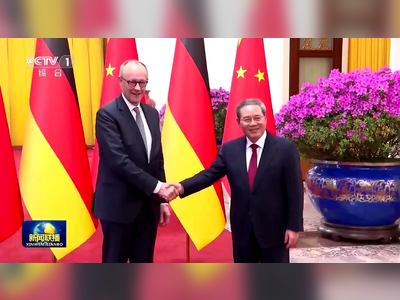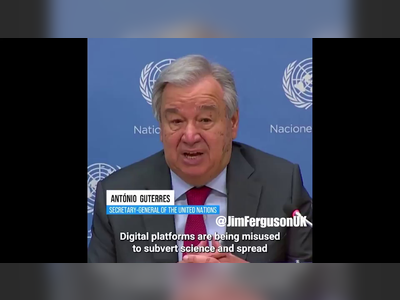
Overview of the Court of Justice of the European Union
Legal jurisdiction, structure, and procedural framework of the EU's judicial institution
The Court of Justice of the European Union (CJEU), established under the Treaty on Lisbon, which took effect on December 1, 2009, serves as the primary judicial body of the European Union (EU).
It possesses legal personality and encompasses responsibilities previously held by the European Community, thereby formally integrating Community law into broader EU law.
This legal framework also maintains the existence of the European Atomic Energy Community (Euratom), with the Court's jurisdiction regarding Euratom generally paralleling that of the European Union.
Composition
The CJEU comprises 27 Judges and 11 Advocates General, all appointed by mutual agreement of the EU Member States following consultations regarding their qualifications.
They serve a renewable term of six years, ensuring independence and recognized competence within their national judicial systems.
The Judges elect a President and a Vice-President from within their ranks for a renewable term of three years.
The President oversees the Court’s operations and hearings, while the Vice-President supports the President and assumes responsibilities as needed.
Advocates General provide impartial opinions in assigned cases, assisting the Court in its decision-making processes.
The Registrar, functioning as the secretary general, manages the institution's administrative functions.
The CJEU functions in several configurations: it can sit as a full court, in a Grand Chamber consisting of 15 Judges, or in Chambers of three or five Judges.
Full court sessions are reserved for specific cases outlined by the Court's Statute or those deemed exceptionally important.
The Grand Chamber is convened at the request of a Member State or institution involved in a case or for intricate matters.
Remaining cases are handled by smaller Chambers.
Jurisdiction
The jurisdiction of the CJEU is clearly defined, accommodating various categories of proceedings to uphold EU law effectively and uniformly.
References for a Preliminary Ruling: National courts may request interpretations of EU law from the CJEU to clarify compliance issues with their legislation.
The Court's ruling in such instances is binding, ensuring consistent legal understanding across Member States.
As of October 2024, the General Court shares this jurisdiction, handling specific areas such as VAT, excise duties, and transportation regulations, while retaining broader interests within primary EU law.
Actions for Failure to Fulfill Obligations: This category empowers the CJEU to assess if a Member State has not adhered to EU law.
The European Commission typically initiates this process by allowing the Member State to respond to complaints.
If unresolved, the case may escalate to the CJEU, which can impose penalties for non-compliance.
Actions for Annulment: Applicants can seek the annulment of EU measures, primarily initiated by Member States against EU institutions.
The CJEU holds exclusive authority over specific actions involving the European Parliament and Council, whereas the General Court manages other related cases.
Actions for Failure to Act: This allows for judicial review of unfulfilled institutional actions within the EU. An appeal can only follow after the concerned institution has been notified of its inaction.
Appeals: Appeals on points of law can be made to the CJEU against judgments from the General Court.
An acknowledged appeal results in a potential retrial by the General Court or a direct ruling from the CJEU itself.
Procedure
CJEU proceedings include distinct written and, where applicable, oral components.
Commencement of Proceedings: In preliminary rulings, national courts present questions regarding EU law, with the CJEU determining if the matter falls within its jurisdiction.
This process initiates after translation and serving of documents.
Direct Actions and Appeals: Legal actions require an application to the Registry, with subsequent publication in the Official Journal.
Respondents have stipulated timeframes to issue defenses or responses.
Public Hearing and Advocates General's Opinion: Should a public hearing be arranged, both the parties and the Advocate General present their arguments.
Following this, the Advocate General issues an opinion that advises on the judicial response, concluding the oral proceedings.
Judgments: Decisions are based on a majority vote of Judges and are announced in public sessions, with available judgements and opinions published on the CJEU's digital platform.
Special Forms of Procedure: Specific procedures such as the Simplified Procedure for straightforward questions, the Expedited Procedure for urgent matters, and the Urgent Preliminary Ruling Procedure for sensitive issues allow the CJEU to handle cases efficiently while addressing urgent legal concerns effectively.
It possesses legal personality and encompasses responsibilities previously held by the European Community, thereby formally integrating Community law into broader EU law.
This legal framework also maintains the existence of the European Atomic Energy Community (Euratom), with the Court's jurisdiction regarding Euratom generally paralleling that of the European Union.
Composition
The CJEU comprises 27 Judges and 11 Advocates General, all appointed by mutual agreement of the EU Member States following consultations regarding their qualifications.
They serve a renewable term of six years, ensuring independence and recognized competence within their national judicial systems.
The Judges elect a President and a Vice-President from within their ranks for a renewable term of three years.
The President oversees the Court’s operations and hearings, while the Vice-President supports the President and assumes responsibilities as needed.
Advocates General provide impartial opinions in assigned cases, assisting the Court in its decision-making processes.
The Registrar, functioning as the secretary general, manages the institution's administrative functions.
The CJEU functions in several configurations: it can sit as a full court, in a Grand Chamber consisting of 15 Judges, or in Chambers of three or five Judges.
Full court sessions are reserved for specific cases outlined by the Court's Statute or those deemed exceptionally important.
The Grand Chamber is convened at the request of a Member State or institution involved in a case or for intricate matters.
Remaining cases are handled by smaller Chambers.
Jurisdiction
The jurisdiction of the CJEU is clearly defined, accommodating various categories of proceedings to uphold EU law effectively and uniformly.
References for a Preliminary Ruling: National courts may request interpretations of EU law from the CJEU to clarify compliance issues with their legislation.
The Court's ruling in such instances is binding, ensuring consistent legal understanding across Member States.
As of October 2024, the General Court shares this jurisdiction, handling specific areas such as VAT, excise duties, and transportation regulations, while retaining broader interests within primary EU law.
Actions for Failure to Fulfill Obligations: This category empowers the CJEU to assess if a Member State has not adhered to EU law.
The European Commission typically initiates this process by allowing the Member State to respond to complaints.
If unresolved, the case may escalate to the CJEU, which can impose penalties for non-compliance.
Actions for Annulment: Applicants can seek the annulment of EU measures, primarily initiated by Member States against EU institutions.
The CJEU holds exclusive authority over specific actions involving the European Parliament and Council, whereas the General Court manages other related cases.
Actions for Failure to Act: This allows for judicial review of unfulfilled institutional actions within the EU. An appeal can only follow after the concerned institution has been notified of its inaction.
Appeals: Appeals on points of law can be made to the CJEU against judgments from the General Court.
An acknowledged appeal results in a potential retrial by the General Court or a direct ruling from the CJEU itself.
Procedure
CJEU proceedings include distinct written and, where applicable, oral components.
Commencement of Proceedings: In preliminary rulings, national courts present questions regarding EU law, with the CJEU determining if the matter falls within its jurisdiction.
This process initiates after translation and serving of documents.
Direct Actions and Appeals: Legal actions require an application to the Registry, with subsequent publication in the Official Journal.
Respondents have stipulated timeframes to issue defenses or responses.
Public Hearing and Advocates General's Opinion: Should a public hearing be arranged, both the parties and the Advocate General present their arguments.
Following this, the Advocate General issues an opinion that advises on the judicial response, concluding the oral proceedings.
Judgments: Decisions are based on a majority vote of Judges and are announced in public sessions, with available judgements and opinions published on the CJEU's digital platform.
Special Forms of Procedure: Specific procedures such as the Simplified Procedure for straightforward questions, the Expedited Procedure for urgent matters, and the Urgent Preliminary Ruling Procedure for sensitive issues allow the CJEU to handle cases efficiently while addressing urgent legal concerns effectively.
AI Disclaimer: An advanced artificial intelligence (AI) system generated the content of this page on its own. This innovative technology conducts extensive research from a variety of reliable sources, performs rigorous fact-checking and verification, cleans up and balances biased or manipulated content, and presents a minimal factual summary that is just enough yet essential for you to function as an informed and educated citizen. Please keep in mind, however, that this system is an evolving technology, and as a result, the article may contain accidental inaccuracies or errors. We urge you to help us improve our site by reporting any inaccuracies you find using the "Contact Us" link at the bottom of this page. Your helpful feedback helps us improve our system and deliver more precise content. When you find an article of interest here, please look for the full and extensive coverage of this topic in traditional news sources, as they are written by professional journalists that we try to support, not replace. We appreciate your understanding and assistance.











